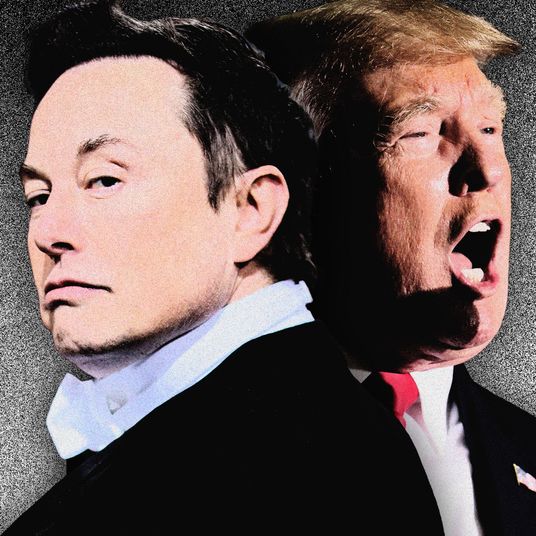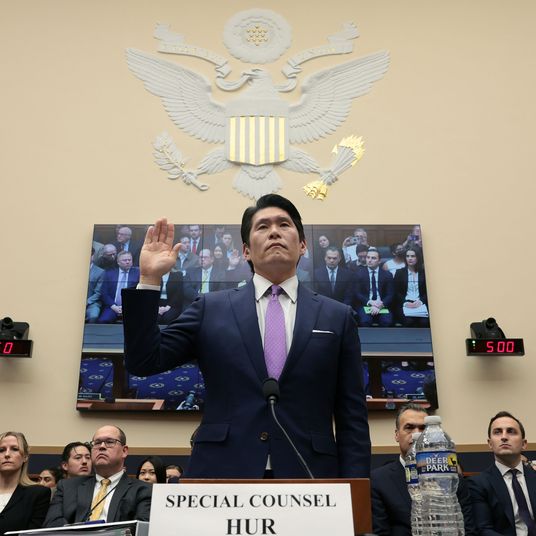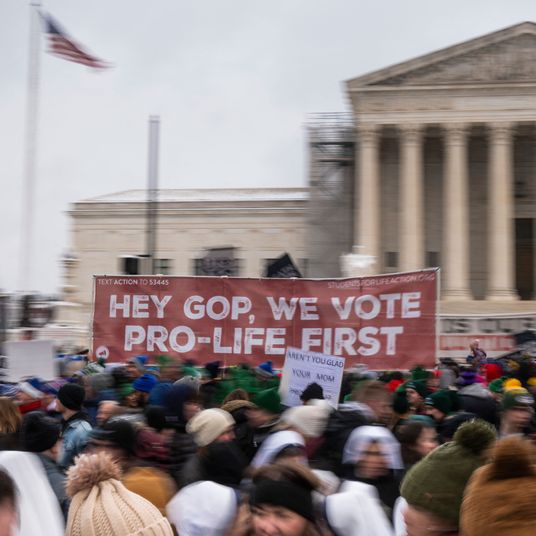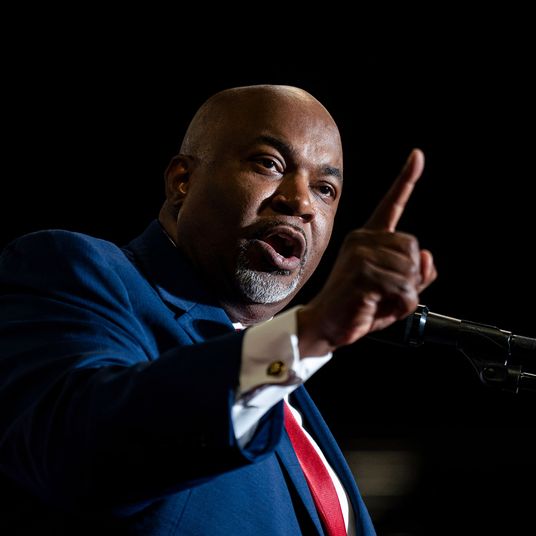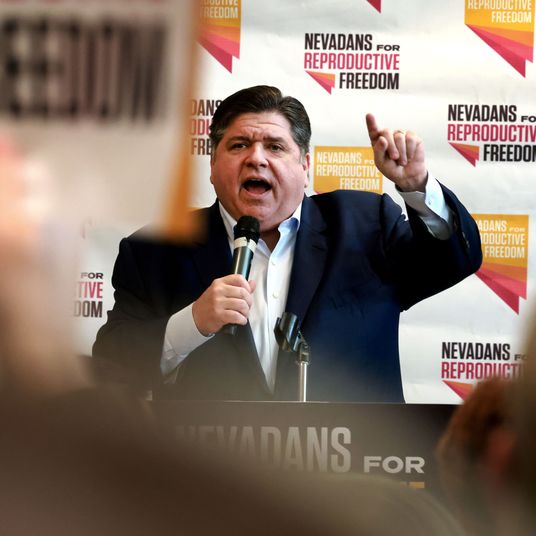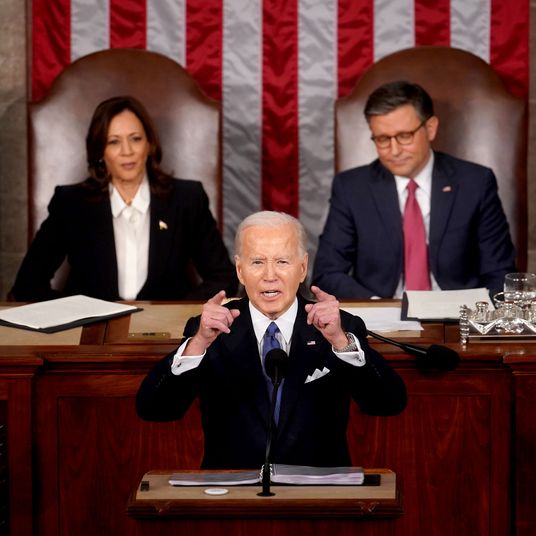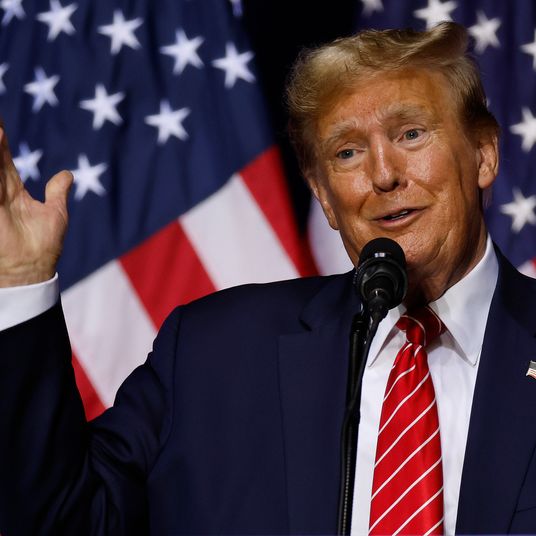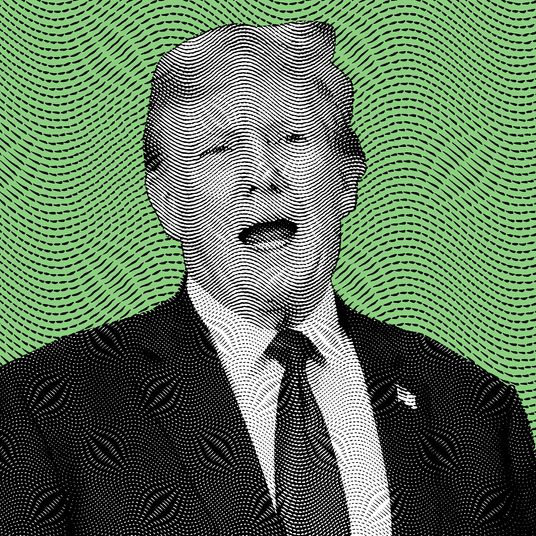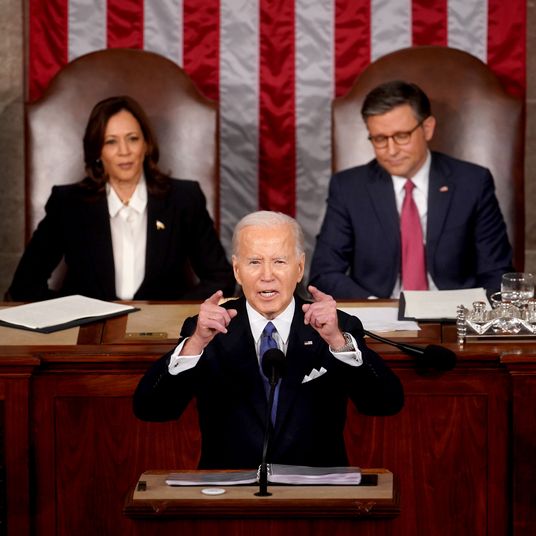This week, CNBC host Joe Kernan prodded Donald Trump to support cuts to social-insurance programs. “Have you changed your outlook on how to handle entitlements — Social Security, Medicare, Medicaid — Mr. President?” he asked. “Seems like something has to be done or else we’re going to be stuck at 120 percent of debt to GDP forever.”
Trump replied that he might be open to cutting those programs, without committing himself to a course of action, and quickly changed the subject to the supposed ease of cutting waste and fraud:
First of all, there is a lot you can do in terms of entitlements, in terms of cutting, and in terms of, also, the theft and bad management of entitlements. Tremendous bad management of entitlements. There’s tremendous amounts of things and numbers of things you can do. So I don’t necessarily agree with the statement.
Trump is known as a populist defender of retirement spending, but this is hardly the first time he’s floated the prospect of cutting these programs. In 2000, Trump wrote — fine, “wrote” — a book calling Social Security a “Ponzi scheme” and which called for allowing “every American to dedicate some portion of their payroll taxes to a personal Social Security account that they could own and invest in stocks and bonds.” Additionally, he said that “We can also raise the age for receipt of full Social Security benefits to seventy.”
In January 2020, he was prodded (again by CNBC) about whether he would cut entitlements, to which he replied:
At some point they will be. We have tremendous growth. We’re going to have tremendous growth. This next year I — it’ll be toward the end of the year. The growth is going to be incredible. And at the right time, we will take a look at that.
Would Trump actually do this in a prospective second term, presumably with Republicans controlling both chambers? It is certainly possible.
Other than admiring dictators in general and Russian dictators in particular, Trump has almost no consistent policy principles. He’s repeatedly reversed his positions even after using them to great political effect. In 2016, he promised to raise taxes on the rich and expand health-care coverage to everybody, and then in office he pursued the opposite of both goals.
More recently, Trump supported a boycott of Bud Light and tried to force China to sell TikTok, and then he reversed both positions when vested financial interests made it lucrative for him to change his mind. What’s more, the pseudo-populist wing of the Republican party has currently stood behind maintaining retirement spending, but this is obviously them backfilling justifications for supporting Trump. The party’s self-styled populism is actually a Trump personality cult that will reliably follow any position he takes, and therefore not an impediment if he decides to attack the position they’ve been defending.
Trump will advance any position that seems it would help him politically or financially. Even though they would be deeply unpopular, it’s possible that he might calculate that sweeping cuts to social-insurance programs would be to his advantage. One reason is that high interest rates and a structural budget deficit could create the kind of interest-rate crunch that forces immediate action to cut deficits, as occurred in the late 1980s and early 1990s in response to Reagan deficits.
That era has been forgotten, because a combination of tax hikes and spending cuts by George Bush and Bill Clinton got the deficit under control, which led to a long era of low interest rates. But interest-rates pressure can threaten an immediate recession and spur Congress to act. And the Republican Party prioritizes low taxes for the rich above every other consideration, which would mean retirement spending would have to be cut.
More generally, the conservative movement has never accepted the legitimacy of the New Deal or the Great Society. Conservatives have accepted the political limits of their ability to attack wildly popular retirement spending, but their restraint should be seen as them waiting for an opportune moment to advance their agenda rather than actual surrender. Conservatives would be willing to take political risks to fulfill their generational goal of slashing the welfare state. It would be a matter of persuading Trump to take this risk along with them.
Trump abandoned his populist campaign promises and advanced Paul Ryan’s priorities in his first two years. One reason is that he lacked a coterie of advisers to design an alternative policy agenda. Another is that the traditional conservatives who ran both chambers of Congress had leverage over Trump, and they turned a blind eye to his corruption in return for his fealty on domestic policy. If those conservatives gain political or financial leverage over Trump again, he would obviously do what they want, because he does not care about the policy substance at all.


